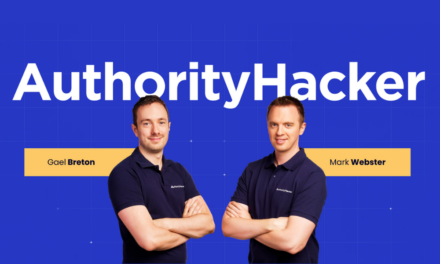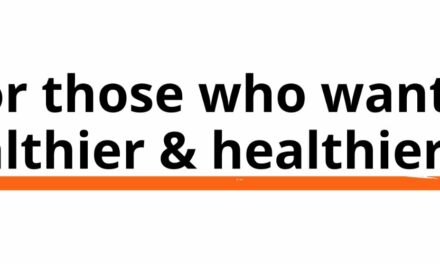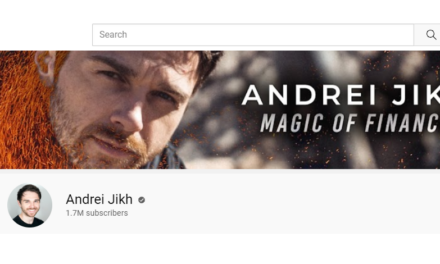We interrupt our regularly scheduled content entrepreneur spotlight to feature the story of Joe Pulizzi as told by Joe Pulizzi. He’s the founder of this newsletter and Tilt Publishing. He is best known as the founder of the Content Marketing Institute, which he sold in 2015 for nearly $30 million, and knows a little bit about building a content business.
Starting and growing a content business is personal. You don’t need to build a multimillion-dollar company just because you think that’s every entrepreneur’s goal. Joe says you must ask yourself: Does my business purpose align with all aspects of my life (or the life I desire)?
When he and his wife, Pam Pulizzi, created the Content Marketing Institute, their goal was to exit the business within 10 years for $15 million to make it a generational wealth opportunity.
Why $15 million? Because their accountant told them they needed at least $10 million to have enough money after taxes, so they didn’t have to work.
“The business’ purpose is up to everyone individually because, as you all know, it takes a lot of blood, sweat, tears, and sacrifices to make that happen,” Joe says. “Even when you’re not working as an entrepreneur, you’re working because you’re thinking about it.”
That’s just the first piece of advice from Joe. He recently chatted with the NET (Never-Ending Ticket) holders for the Content Entrepreneur Expo about what his ups, downs, and lessons learned. Read on for excerpts from that conversation.
A beginning failure, a middle success, and an end with almost $30M
I started at Penton Media in 2000 in the custom media division, which we now call content marketing. Brands weren’t creating a lot of content. Their social media wasn’t around yet. I stayed until 2007. It had some small stock options that provided us with a little cash and laid the groundwork for what ultimately became the Content Marketing Institute.
I left at the end of March 2007 and started my blog, Content Revolution, on April 2. I didn’t have a product until the next year — Junta 42. It was a matching service site for marketing agencies and prospective clients. That was a financial disaster. I spent at least $75K, maybe $100K, trying to get it together. It never worked.
But I also had our audience asking about content marketing training for their teams.
That’s when I made the all-in jump and talked to Pam. We started working on the idea of Content Marketing Institute and launched it in May 2010. It really, really took off from there.
Content Marketing World, the in-person event, debuted in September 2011, and that was the first time I felt we were going to make it.
Five years later, I sold CMI to a global media conglomerate. The day we sold it, the number in the bank account was $17.9M, but through a three-year bonus structure, the final sale price was almost $30M.
The Content Inc. model for entrepreneurs
How did the mega success of CMI happen? It followed what I now call Content Inc. I wrote a book with the same title.
Helpful Resource: The 7 Steps in the Content Inc. model
There’s nothing revolutionary about the Content Inc. model. If you grew up in publishing, you would look at that and say, that’s Publishing 101: Build an editorial vision statement and execute on that mission by differentiating yourself in the marketplace.
Helpful Resource: Why You Need a Content Mission Statement
You start on one thing. You do that one thing really, really well. You try to monetize that as quickly as you possibly can in multiple ways, but you still stay focused on your base. You grow this audience, and you grow enough that you can actually launch other products off of that.
That’s it. That’s basically every media company since the dawn of time.
Along this entrepreneurial journey, Joe has written multiple books, including Epic Content Marketing in 2015 and Content Inc. in 2021, the latter of which, he says, is probably the best-performing book by sales over time.
The best books sometimes have no original research. Mine had no original research. I had case studies, but I just tried to tell the story in a simpler way than when you’re at a publishing event and hear all these great media minds up there talking about the same thing.
Helpful Resource: 13 Lessons Learned in the Book Writing Process
Keys to pushing through and finding success
It’s this blind belief that you can do it because the ups and downs are horrific. You get a win, you’re on top of the world, and 15 minutes later, you’re lower than low because you’re like, I’m such a failure
You have to keep visualizing this success. Every morning, I would get up and read my vision statement for where I thought the business should go, which was to sell this business for at least $15M by 2015. I started that seven years before and read that almost every day, even on weekends, and most of the time before I went to bed, so that I could have my subconscious sort of work on the issues.
The other important thing to do is to make super quick decisions. Then slow to change those decisions over time and stick with them. When I found myself not being able to sleep at night, it was generally over a decision I did not make. If you don’t have the right mindset, none of this other stuff is going to work.
Overcoming down days when you feel stagnant or frustrated is necessary. I’m a reader and a runner. I generally read for at least 20 minutes a day. I’ll get up in the morning and get a book out, and that sets the tone for the day. It gets my mind working in the right direction. When I’m really, really frustrated, I’ll go for a run.
If none of those things work, go help someone else. Nothing will set you straight in life better than helping somebody else with their problems.
But don’t forget to get the help you need, too.
The Content Marketing Institute started flourishing because I stopped doing all the things. Maybe a lot of you can relate. I was like, ‘Oh, we have limited funds. I have to do the web stuff. I have to edit. I have to change the design on the blog. I’m gonna tweak the logo.’ I was literally doing all the things, and it was half-assed, to be honest.
There came a point when Pam, my wife and business partner, said, “OK, you are not very good at these things, Joe.” We had the talk, and that’s when I stopped managing my calendar. And that’s when I stopped doing operations. She ran all the human resources for all the contractors we used. I didn’t do any of that. She ran Content Marketing World operations.
Many of you are doing a lot more than you should do. What is your time worth? You can do a better job of monetizing your time. I get it, we all have limited funds, but it was necessary to actually spend money to outsource things.
If you have a co-pilot like I did or not, you can also pick out three or four people to not only support you and what you are trying to do, but who will keep you accountable. I talked to Jim McDermott, my boss at Penton Media, once a week about business issues and what I was doing. He challenged me on every call. Sometimes I hated the calls.
Ready for the next phase in your content business? Answer this question: What is your desire? Write it down as a goal you can measure. Review that goal on a regular basis and remove all the things keeping you from that goal.
About the author
Joe Pulizzi is founder of multiple startups including content creator education site, The Tilt and is the bestselling author of seven books including Content Inc. and Epic Content Marketing, which was named a “Must-Read Business Book” by Fortune Magazine. Joe is best known for his work in content marketing, first using the term in 2001, then launching Content Marketing Institute and the Content Marketing World event. He has two weekly podcasts, the motivational Content Inc. podcast and the content news and analysis show This Old Marketing with Robert Rose. His foundation, The Orange Effect, delivers speech therapy and technology services to over 200 children in 34 states.











